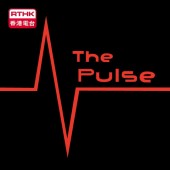 Loading ...
Loading ...Bernard Chan, Convenor of the Executive Council
2020-04-05
返回
Hello to all my friends in Hong Kong – and to everyone listening overseas. I hope you are all looking after yourselves and keeping well.
Wherever you are, I expect everyone is talking about the coronavirus. This is clearly one of the greatest challenges the world has faced in our times.
Here in Hong Kong, we are now into our third month of this crisis. During that time we have seen cases go up, then levelled off – but then, more recently, go up again in a second wave.
And people are asking – has the government done enough? Should it be doing more?
***
To put this in perspective, let’s briefly look back. The outbreak first started spreading into Hong Kong in late January.
People called for tighter and faster controls on the flow of visitors coming in from the mainland. There were also complaints about the supply of face masks and other items. And there was a huge debate over whether we should close schools, and how much we should impose social distancing.
Back in early February, critics were urgently demanding border controls. This is a series of checkpoints with well over half a million people coming through every day, in and out. Over 85% of those people are local residents. You are talking about massive disruption to huge numbers of families and to businesses.
Our officials also had to consider quarantine arrangements for residents who returned here after the cut-off date. The quarantine arrangements themselves were an extra controversy, as local neighbourhoods opposed facilities in their areas.
As it was, the government introduced restrictions in stages. And by mid-February, the number of arrivals coming across dropped by an incredible 98 percent.
The government also announced the closure of schools and many government offices.
The community itself started to change its behaviour. With our experience of SARS, Hong Kong people instinctively started to wear masks and wash their hands more. They stopped going out so much. Many businesses adopted flexible hours or encouraged staff to work from home.
The shortage of toilet paper and sanitizer was a classic case of panic-buying. People demanded government action, although there were few practical short-term options. But within a few weeks, supplies of these items were plentiful again.
***
Critics said the government should have acted faster. But officials faced practical and administrative problems. They also had to consider the economic costs of their actions. Major industries like airlines have largely come to a halt. Big Hong Kong events – from the Rugby Sevens to the Art Basel fair – have been cancelled or postponed. With no tourists and fewer local residents going out, small businesses and their employees are suffering very badly.
We are probably looking at a sharp rise in bankruptcies and unemployment.
Governments everywhere are facing this dilemma. Do you sacrifice huge numbers of small companies and jobs? Or do you take the risk of overloaded hospitals and lots of people dying?
I think this is a major reason why governments in Western countries have been so slow in taking action preparing for the epidemic. People in the West heard about a disease in China in January. They see places in Asia like Hong Kong taking it very seriously, with quarantines and everyone wearing masks. These places largely kept the disease under control. And so people in the West think it all looks OK.
There are health experts and others in the West demanding swift action. But it is difficult to convince leaders or the public when it just looks like another sort of flu. A month later, and the hospitals are running short of ventilators and people are dying – then these countries start introducing far more extensive lockdowns than we have had in Hong Kong.
***
For a while, it looked like we had “flattened the curve”. But we would be wrong for us in Hong Kong to feel smug.
With the disease getting worse in the US and Europe, Hong Kong people overseas have been coming back to the city. We are now seeing a second wave of the virus, and more cases being found. Once again, the government has come under pressure to do more.
Many critics have demanded that we further tighten border controls and ban all non-residents from entering. This demand goes down well with the public – and the government has indeed tightened the controls. But the reality is that hardly any non-residents are coming here anyway. On March 21, there were 13,494 arrivals. Of these, 12,256 were Hong Kong residents, and most of the rest were from Macau and Taiwan (so exempt from quarantine). That leaves only 260 non-residents – less than 2% of the total arrivals.
So the public health risk mainly comes from returning Hong Kong residents. We can’t turn these people away. In fact, during March the number of confirmed cases rose from around 100 to 640 as of March 29. Only 13 of these new cases were known to be non-residents.
The government has also taken firm measures to discourage people from gathering in crowded areas. Many civil servants are now working from home again. Restaurants have to reduce the density of customers. Groups of more than four people are forbidden in many places. Gyms and cinemas are closed.
Although these regulations involve penalties, the main aim is to discourage mixing and raise awareness.
More Hong Kong residents will be coming back in the weeks ahead. Maybe some will be bringing the virus.
We still have room to expand our precautions. For example, we could limit restaurants to selling take-out only. Or we could simply impose a much bigger lockdown across the city, and tell all non-essential businesses to close so nearly everyone stays home most of the time for a few weeks.
It would obviously add to the economic costs. It could also risk spreading panic. But we have to accept that it may be necessary, if the alternative is the risk of something worse.
It is impossible to say how long it will take for the whole world to recover. It could easily be months before international travel goes back to normal.
***
Wherever you are listening to this letter from Hong Kong, you probably think your government could have done more. You are probably right. But there are no easy, safe options.
For all of us, this is a learning process. For us in Asia – where we remember our experience with SARS – we have perhaps been better prepared. But we still have a real challenge ahead of us.
I hope wherever you are, you take all the precautions you can to stay safe. And I hope that when we come out of this, the whole world will learn vital lessons for the future.
Meanwhile, don’t forget that April the seventh is World Health Day. I think many members of the community will be showing their appreciation for our health care workers at 8pm that evening. Please think about joining in if you can.
Bernard Chan, Convenor of the Executive Council
2020-04-05Hello to all my friends in Hong Kong – and to everyone listening overseas. I hope you are all looking after yourselves and keeping well.
Wherever you are, I expect everyone is talking about the coronavirus. This is clearly one of the greatest challenges the world has faced in our times.
Here in Hong Kong, we are now into our third month of this crisis. During that time we have seen cases go up, then levelled off – but then, more recently, go up again in a second wave.
And people are asking – has the government done enough? Should it be doing more?
***
To put this in perspective, let’s briefly look back. The outbreak first started spreading into Hong Kong in late January.
People called for tighter and faster controls on the flow of visitors coming in from the mainland. There were also complaints about the supply of face masks and other items. And there was a huge debate over whether we should close schools, and how much we should impose social distancing.
Back in early February, critics were urgently demanding border controls. This is a series of checkpoints with well over half a million people coming through every day, in and out. Over 85% of those people are local residents. You are talking about massive disruption to huge numbers of families and to businesses.
Our officials also had to consider quarantine arrangements for residents who returned here after the cut-off date. The quarantine arrangements themselves were an extra controversy, as local neighbourhoods opposed facilities in their areas.
As it was, the government introduced restrictions in stages. And by mid-February, the number of arrivals coming across dropped by an incredible 98 percent.
The government also announced the closure of schools and many government offices.
The community itself started to change its behaviour. With our experience of SARS, Hong Kong people instinctively started to wear masks and wash their hands more. They stopped going out so much. Many businesses adopted flexible hours or encouraged staff to work from home.
The shortage of toilet paper and sanitizer was a classic case of panic-buying. People demanded government action, although there were few practical short-term options. But within a few weeks, supplies of these items were plentiful again.
***
Critics said the government should have acted faster. But officials faced practical and administrative problems. They also had to consider the economic costs of their actions. Major industries like airlines have largely come to a halt. Big Hong Kong events – from the Rugby Sevens to the Art Basel fair – have been cancelled or postponed. With no tourists and fewer local residents going out, small businesses and their employees are suffering very badly.
We are probably looking at a sharp rise in bankruptcies and unemployment.
Governments everywhere are facing this dilemma. Do you sacrifice huge numbers of small companies and jobs? Or do you take the risk of overloaded hospitals and lots of people dying?
I think this is a major reason why governments in Western countries have been so slow in taking action preparing for the epidemic. People in the West heard about a disease in China in January. They see places in Asia like Hong Kong taking it very seriously, with quarantines and everyone wearing masks. These places largely kept the disease under control. And so people in the West think it all looks OK.
There are health experts and others in the West demanding swift action. But it is difficult to convince leaders or the public when it just looks like another sort of flu. A month later, and the hospitals are running short of ventilators and people are dying – then these countries start introducing far more extensive lockdowns than we have had in Hong Kong.
***
For a while, it looked like we had “flattened the curve”. But we would be wrong for us in Hong Kong to feel smug.
With the disease getting worse in the US and Europe, Hong Kong people overseas have been coming back to the city. We are now seeing a second wave of the virus, and more cases being found. Once again, the government has come under pressure to do more.
Many critics have demanded that we further tighten border controls and ban all non-residents from entering. This demand goes down well with the public – and the government has indeed tightened the controls. But the reality is that hardly any non-residents are coming here anyway. On March 21, there were 13,494 arrivals. Of these, 12,256 were Hong Kong residents, and most of the rest were from Macau and Taiwan (so exempt from quarantine). That leaves only 260 non-residents – less than 2% of the total arrivals.
So the public health risk mainly comes from returning Hong Kong residents. We can’t turn these people away. In fact, during March the number of confirmed cases rose from around 100 to 640 as of March 29. Only 13 of these new cases were known to be non-residents.
The government has also taken firm measures to discourage people from gathering in crowded areas. Many civil servants are now working from home again. Restaurants have to reduce the density of customers. Groups of more than four people are forbidden in many places. Gyms and cinemas are closed.
Although these regulations involve penalties, the main aim is to discourage mixing and raise awareness.
More Hong Kong residents will be coming back in the weeks ahead. Maybe some will be bringing the virus.
We still have room to expand our precautions. For example, we could limit restaurants to selling take-out only. Or we could simply impose a much bigger lockdown across the city, and tell all non-essential businesses to close so nearly everyone stays home most of the time for a few weeks.
It would obviously add to the economic costs. It could also risk spreading panic. But we have to accept that it may be necessary, if the alternative is the risk of something worse.
It is impossible to say how long it will take for the whole world to recover. It could easily be months before international travel goes back to normal.
***
Wherever you are listening to this letter from Hong Kong, you probably think your government could have done more. You are probably right. But there are no easy, safe options.
For all of us, this is a learning process. For us in Asia – where we remember our experience with SARS – we have perhaps been better prepared. But we still have a real challenge ahead of us.
I hope wherever you are, you take all the precautions you can to stay safe. And I hope that when we come out of this, the whole world will learn vital lessons for the future.
Meanwhile, don’t forget that April the seventh is World Health Day. I think many members of the community will be showing their appreciation for our health care workers at 8pm that evening. Please think about joining in if you can.
Politicians and public figures from a range of backgrounds take turns to have their say on important matters of the day in this personal view programme.
Catch it live: Sunday 8:15am - 8:25am
Podcast: Updated weekly and available after broadcast.












